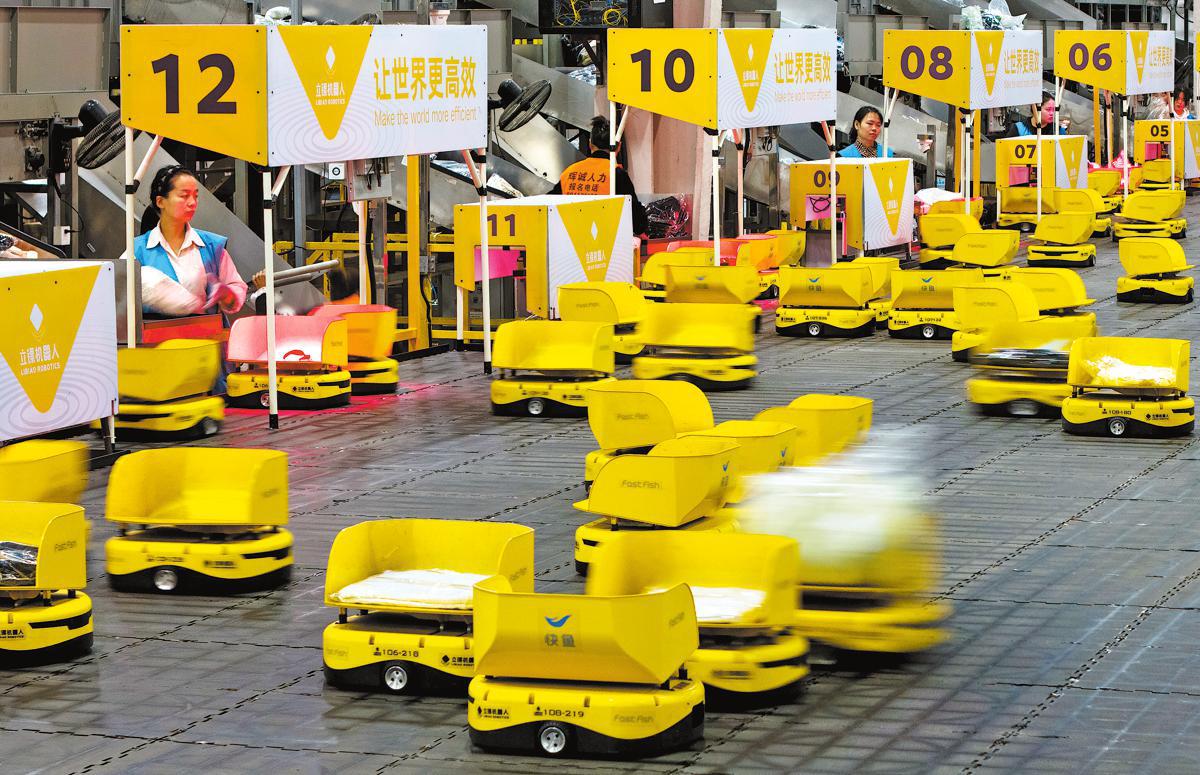AI boosts Singles Day sales, shopping experience


Chinese consumers exhibited robust purchasing power as they shopped for intelligent electronic products and home appliances during this year's Singles Day carnival — an online sales event that culminated on Tuesday — with artificial intelligence technology making its presence felt in almost every aspect of the e-commerce segment.
Experts said that as the world's biggest online shopping event, the Double Eleven promotional gala played a vital role in unleashing domestic demand and promoting the recovery of the consumer market, given that boosting consumption is top priority to ensure China's economic growth this year.
They added that the large-scale adoption of AI on e-commerce platforms will continue to improve the operational efficiency of merchants, offer shoppers personalized recommendations and real-time assistance and bolster the sale of products.
Data from e-commerce giant JD shows that sales of consumer electronic devices, such as smartphones, gaming laptops and tablets, featuring innovative AI technology, surged over 100 percent year-on-year during the shopping festival, while the turnover of home appliances and home furnishing products more than doubled from a year earlier.
The company's AI-powered digital humans assisted more than 40,000 merchants in their livestreaming sessions, and the number of inquiries handled by intelligent customer service chatbots surpassed 4.2 billion, JD said.
According to Tmall, Alibaba's business-to-customer platform, 80 brands saw their sales surpass 100 million yuan ($14 million) within the first hour of the shopping extravaganza kicking off at 8 pm on Oct 20. The transaction volume of more than 30,000 brands doubled year-on-year.
Alibaba has accelerated steps to promote the large-scale deployment of AI on Taobao and Tmall, and integrate large language models into the platforms' core search and recommendation engines to entice more consumers and increase sales.
Online discounter PDD Holdings is leveraging AI to analyze market trends and consumer needs and preferences, while optimizing sales strategies to improve shopping experiences.
Hong Yong, an associate research fellow at the Chinese Academy of International Trade and Economic Cooperation, said: "AI is deeply reshaping the decision-making process and operational efficiency in the e-commerce field. Consumers can select products using AI-enabled search tools, while AI helps merchants lower costs and improve efficiency in terms of product design, marketing and customer services."
He added that the large-scale use of AI during this year's Singles Day shopping festival not only offered consumers a smarter and more convenient shopping experience, but also created immense growth opportunities for brands and merchants.
According to him, China's e-commerce sector is gradually shifting toward an innovation-driven growth stage fueled by the accelerated application of AI-powered intelligent recommendations, customer services and virtual shopping guides.
Jason Yu, general manager of CTR Market Research, said e-commerce players have adopted a more pragmatic and simpler promotional method this year, with direct price cuts as a preferred strategy to attract price-conscious consumers.
Yu noted that the meteoric rise of instant retail, a combination of online shopping and instant delivery, will be a "new battlefield" for major internet and e-commerce platforms.
China's retail sales, a significant indicator of consumption strength, rose 4.5 percent year-on-year in the first three quarters of this year, according to the National Bureau of Statistics. Online sales remained a bright spot, rising 9.8 percent year-on-year during the January-September period.
Pan Helin, a member of the Ministry of Industry and Information Technology's Expert Committee for Information and Communication Economy, said that to further vitalize the consumer market and shore up economic growth, more stimulus policies are needed to increase household incomes, stabilize and expand employment, and nurture diversified purchasing scenarios and new types of consumption.
Mo Daiqing, a senior analyst at the Internet Economy Institute, a domestic consultancy, said: "Chinese consumers are becoming more rational and careful in reviewing their needs. They prefer to purchase premium merchandise with high cost-effectiveness."
Online retailers should step up investment in technological innovation, elevate the quality of products and optimize the management of supply chains to attract more young consumers, Mo added.




































